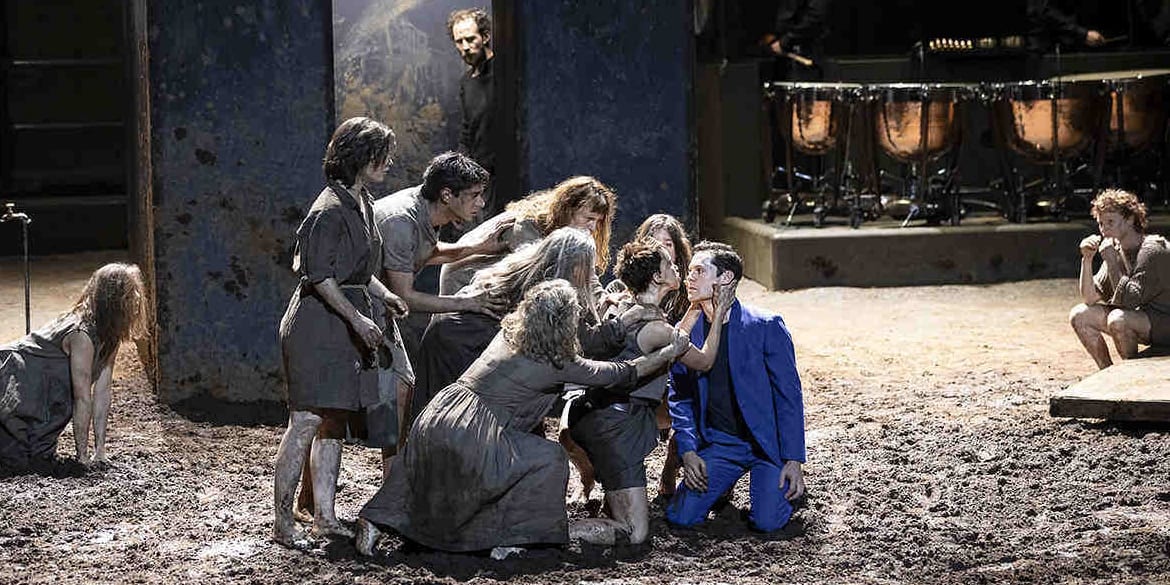At the forefront, a mud floor. In the centre, a kind of open construction. In the background, two percussion teams. The simplicity of Ivan van Hove’s staging for his adaptation of Électre/Oreste is striking from the beginning and successfully blends Euripides’ two major texts with the Comédie Française troupe.
What famous history of the Greek repertoire are we talking about? The story takes place in the Atrids’ homeland. Seven years earlier, Clytemnestre had convinced her lover Egisthe to murder Agamemnon, her husband. Électre (Suliane Brahim), the king’s daughter, was sent to the countryside by her mother and married to a peasant. Two young people arrive one day pretending to give Electra news of Oreste (Christophe Montenez), her brother. Except one of these people happens to be him. Delphi’s oracle asked him to kill Egisthe, and his sister wants him to kill their mother too. Oreste takes care of it right away, but he goes crazy as the Erinyes pursue him.
This is a very violent story of revenge and death that is taken to the letter by Ivan van Hove. The director uses black as the colour that will symbolize these dark themes. Even the mud in which the actors walk is part of this ‘score’ coming from the darkness. The story of Électre and Orestes is violent because of its murderous content – Ivan van Hove does not skimp on this – the effects of blood and the nature of the matricide that drives Orestes mad are ever prominent. Coherent staging effects highlight the tragedy by pushing it to the limit with a rich and powerful musical accompaniment of percussion that thrills the audience (Eric Sleichim’s sound design).
It is a descent into hell that the characters live, superbly embodied by the Comédie Française troupe. Brahim and Montenez form a convincing duo that pushes the limitations of acting to actually embody the madness and evil that gnaw away at people. Special mention needs to be made of Denis Podalydès, the imperious Menelaus in the last part of the story.
As is often the case with Greek tragedies, the question of their modernity arises. What does Électre/Oreste tell us today? This revenge story offers multiple contemporary questions: How can justice be done in a democracy? Should we have recourse to exile or public execution? Can we forgive the worst crimes? What is a banned person? The beginning of the answer is perhaps given by Apollo at the end: ‘Go your way, while worshipping the Concord.’

